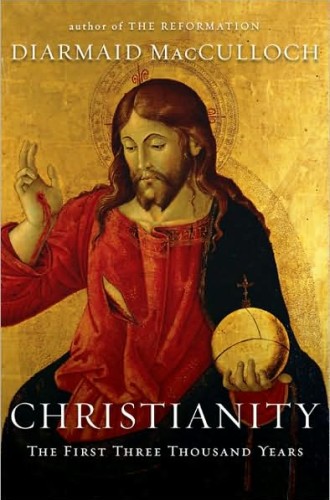Far-flung faith
In the 19th century, Christianity beganto spread across West Africa less as the result of formal missionary endeavors directed from Europe than because of the enthusiasm of ordinary indigenous believers fascinated by the new religion. As Diarmaid MacCulloch notes, "In Sierra Leone, many Krio women highly gifted in commerce were seized by enthusiasm for the Christian faith. On their far travels out of the colony, they marketed Christianity as successfully as all their other wares, like the Syrian merchants of Central Asia long before them." In itself, this story of the determined Krio women is of no unique significance, but with its glancing analogy to events long ago on a continent far away, the passage gives an excellent idea of the virtues (and quirks) of MacCulloch's awe-inspiring history of Christianity.
For one thing, this passage—and countless others like it throughout the weighty, almost 1,200-page volume—focuses on the activities not of churches, but of ordinary believers who practice and preach the faith in ways that they understand, but that might not correspond to the sense of any formal institutional body. I enjoyed the remark of the frustrated 20th-century Mexican priest who told his bishop that all his parishioners did indeed practice Catholicism, but "in a manner of their own." This is emphatically a history of Christianity, and of Christians, rather than of the church.
The book's historical vision also commands respect. How many other historians would let their minds wander so freely between West Africa in 1850 and the Silk Road a thousand years earlier? When approaching large subjects, historians tend to focus on periods and themes that appeal especially to them and skate briefly over eras they find less interesting. MacCulloch does not succumb to the temptation to focus on modern debates at the expense of earlier times; nor does he pass over the Middle Ages as a homogeneous lump. He discusses all ages with equal erudition and enthusiasm. My unscientific attempt to locate the midpoint of the book landed me at the subheading "Tatars, Lithuania and Muscovy (1240–1448)" in a section dealing chiefly with the Orthodox churches.






